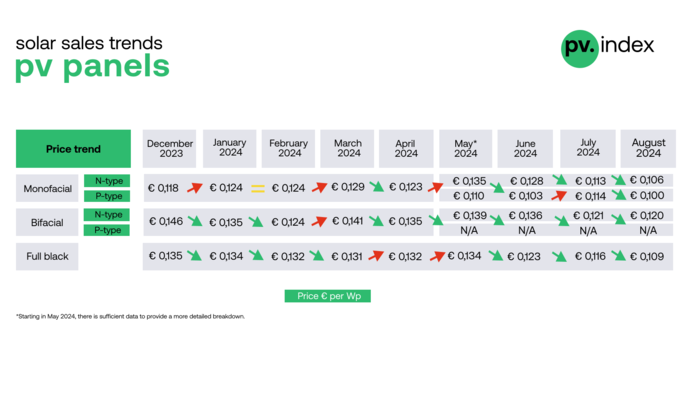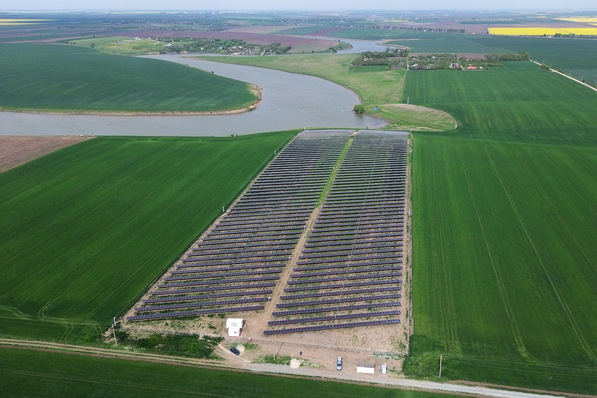Flash floods in Western and Central Europe, devastating forest fires in North America and Southern Europe: the consequences of climate change can no longer be ignored. Now the United Nations Intergovernmental Panel on Climate Change (IPCC) has made it clear in its sixth assessment report that the inaction of the past years and decades has consequences. For global warming is proceeding faster than previously assumed.
According to the IPCC's current calculations, the earth's surface temperature will exceed 1.5 degrees Celsius above pre-industrial levels before the end of this decade if current trends continue. Extreme weather events will continue to increase in frequency and intensity, with corresponding consequences for people and the economy.
Three scenarios calculated
The researchers have calculated several scenarios based on the development of the past years. On the one hand, they calculated what would happen if greenhouse gas emissions - which, in addition to CO2, also include methane, nitrogen oxides and sulphur dioxide - doubled. Secondly, they have calculated how the Earth's climate will develop if greenhouse gas emissions remain at the same level until the middle of the century. A third scenario looks at the development if emissions are reduced to zero by 2050. The fourth scenario calculates the development with a subsequent negative CO2 balance.
2.1 to 3.5 degrees increase if we carry on as before
Only in the last case will the Earth's surface temperature between 2081 and 2100 be about 1.5 degrees above the temperature of the years 1850 to 1900. Here, the range that temperatures can actually take is between just under one and 1.8 degrees. Even if greenhouse gas emissions fall to zero by 2050, the Earth's surface temperature will rise to almost 1.9 degrees by the end of the century. Here the range is between about 1.2 and almost 2.5 degrees. If current greenhouse gas emissions are maintained, the surface temperature between 2081 and 2100 will reach a value of 2.1 degrees at best. At worst, it will actually rise to over 3.5 degrees. Doubling emissions would cause temperatures to rise between 3.3 and about 5.7 degrees.
Giving people time to adapt
Of course, this means that the climate and energy policies of the last decades are also under criticism. The restructuring of energy supply, transport and resource use must go faster than before, and in the meantime limiting the temperature rise to below 1.5 degrees is becoming increasingly unlikely. This is what Robert Habeck, chairman of the German Green Party, means when he says in an interview that it is no longer a question of restoring the old climate conditions. It is too late for that, he says. Rather, it is a matter of slowing down climate change to such an extent that humanity is able to adapt to the new conditions, Habeck explains.
IPCC must be more urgent in its warnings
But the IPCC is not without its critics. Hans-Josef Fell, chairman of the Energy Watch Group, accuses the climate council of being too hesitant with its warnings in recent years. "It is true that for decades the Intergovernmental Panel on Climate Change has always warned humanity that global warming will have catastrophic effects. But how fast the crisis is progressing and how dramatic the situation is and will become, the IPCC has so far failed to forecast with any consistency," Fell explains. "Once again, as it has done from report to report, it has had to correct itself again in the first part of the Sixth Assessment Report presented today."
See also: Sungrow chairman issues “red alert” on climate change
Of course, Fell also recognises that science is evolving, and models are becoming more accurate. IPCC Chairman Hoesung Lee also explains the correction, among other things, with the further development of climate science. But this also makes an important contribution to climate negotiations and decision-making.
Change of course urgently needed
For this is now much more important. "As the most important scientific basis for decision-making for political decision-makers, the IPCC report is a clear warning that drastic turning points for the climate are imminent. This is our final wake-up call. Urgent system-wide action must be taken now if we are to have any chance of limiting warming to 1.5 °C and mitigating the catastrophic and irreversible impacts of climate change," therefore explains Mirijam Wolfrum of CDP Europe, an organisation that promotes the disclosure of environmental data from companies, cities, states and regions. "It is imperative to change course at the COP26 climate conference. We need concrete action now, not just pledges," she calls for action. However, she said, this does not only concern states, but also companies and financial institutions, which must finally take climate protection seriously. "While we see tremendous momentum on net-zero pledges, they need to be backed up by science-based interim targets in line with the 1.5-degree target," says Mirijam Wolfrum. "Current corporate targets put the European economy on a 2.7-degree path - companies need to move faster."
Faster expansion of renewables
The goal: humanity must become climate neutral by 2050 at the latest. "For this, we urgently need more speed in climate policy," emphasises Kerstin Andreae, head of the German Association of Energy and Water Industries. "First and foremost, we must now loosen the shackles on the expansion of renewable energies. Without green energy there can be no climate neutrality. It is therefore important that the new federal government implements key decisions in the first six months after taking office in order to trigger the necessary momentum. This includes speeding up planning and approval procedures, making land available, facilitating repowering and making species protection enforceable." She is also calling on participants at the climate conference in Glasgow this November to pass resolutions to this effect.
Climate change is mainly man-made…
After all, now is the last chance to limit global warming to a level that enables humanity not to cut off its own livelihood. Because the IPCC scientists leave no doubt that humans themselves are responsible for climate change. "It has been clear for decades that the Earth's climate is changing, and the role of human influence on the climate system is undisputed," emphasises Valérie Masson-Delmotte, Vice Chair of the Intergovernmental Panel on Climate Change and Chair of Working Group 1 of the IPCC, which deals, among other things, with the physical basis of climate development. The new report also shows that there are other influences on the climate. But the scientific progress does not help to distinguish human from other influences, but also to understand the role of climate change in intensifying certain weather and climate events such as extreme heat waves and heavy rainfall.
…but human action can prevent worse
But the report also shows that human action still has the potential to determine the future course of the climate, IPCC scientists stress. "It is clearly established that carbon dioxide is the main cause of climate change, even though other greenhouse gases and air pollutants also affect the climate. Stabilising the climate requires strong, rapid and sustained reductions in these greenhouse gas emissions and the achievement of net zero CO2 emissions," says Panmao Zhai, also Vice-Chair and a member of IPCC Working Group 1. "Limiting other greenhouse gases and air pollutants, especially methane, could be beneficial for both health and climate," he knows.
Also interesting: Global climate change project at World Heritage sites in Africa
The latest report can be found on the IPCC website. (su/mfo)







